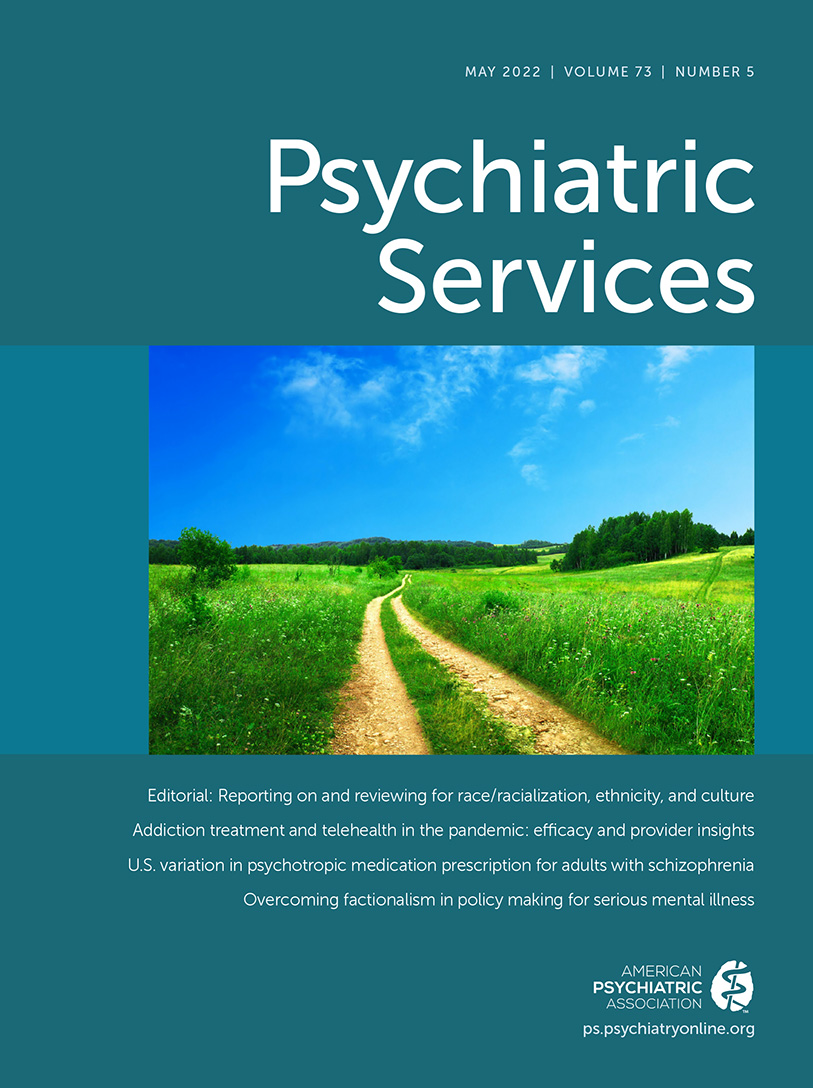Reporting on and Reviewing for Race/Racialization, Ethnicity, and Culture
Structural racism has a profound impact on mental health as well as on the care for mental disorders and the outcomes of that care. It has a long history in medical journals, and Psychiatric Services is no exception. Structural racism affects who runs the journal, who submits and reviews, what topics are emphasized, how the role of racism and ethnoracial categories are conceptualized and included or ignored in analyses and discussions, and what policy and services recommendations are made. Over the past year and a half, we have taken several steps to review the impact of structural racism on the journal and institute changes to address it:
Published an antiracism statement to affirm commitment to antiracism efforts.
Enhanced diversity among the editorial board and column editors.
Appointed a 12-member antiracism task force of clinicians, researchers, and people with lived experience to advise the journal.
Broadened involvement in the journal to include a diverse group of early-career psychiatrists and mentors interested in advancing antiracist policy and services.
Established two new columns, Racism and Mental Health Equity and Lived Experience and Peer Leadership.
Identified people who selected diversity or race-ethnicity terms as expertise categories to act as qualified reviewers in these areas.
Anonymously surveyed authors and reviewers concerning their demographic characteristics.
Invited discussion of antiracism efforts and themes in the From Pages to Practice podcast.
Added disparities-focused publications as an Editor’s Choice topic collection.
Published peer-reviewed articles and commentaries that address racism.
With coleadership from the Psychiatric Services editor, Lisa Dixon, M.D., M.P.H., and Jessica Isom, M.D., M.P.H., an early-career community psychiatrist and clinical instructor at Yale University who served as cochair of the Structural Racism Advisory Group to Psychiatric Services, we are about to embark on the next phase of this process, which directly involves the submission and peer-review procedures. In 2013, the Cultural Committee of the Group for the Advancement of Psychiatry (GAP), led by Roberto Lewis-Fernández, M.D., professor of clinical psychiatry at Columbia and director of the New York State Psychiatric Institute’s Center of Excellence for Cultural Competence, published a checklist that assesses the comprehensiveness and applicability of factors related to race/racialization, ethnicity, and culture (REC) in mental health research articles. We think the GAP-REACH (for Race/Racialization, Ethnicity, and Culture in Health) checklist remains as relevant as ever (1). The checklist can be used by multiple research stakeholders to assess the scope of REC reporting in a research article. For example, authors can use it to guide inclusion of REC factors when drafting their articles, including in the study rationale, methods, results, and discussion sections. Systematic review of how REC topics are approached not only will benefit individual articles but also may help foster a standard operating procedure among authors to reconsider their use of these categories in research. Disparity reduction efforts rely on data assessing the availability and differential impact of mental health services across populations that are defined with REC-related terms. Authors should consider whether and how REC factors apply to the topic of their study, understanding that these REC terms, including the concept of race itself, are socially constructed and contextually interpreted and should be examined in light of their intersection with gender, socioeconomic class, and other social factors. Journal reviewers and editors can use the domains to inform their reviews, and the journal and publisher will aggregate responses to track use of REC factors over time and to develop editorial policies. Other stakeholders can use this tracking to foster initiatives designed to improve the generalizability of the research published in the journal across diverse populations and to evaluate their impact.
We will be piloting the use of a 16-item modified version of the checklist for all submitted regular articles and brief reports in the next 6 months (see online supplement). Authors of research articles will be prompted through the REC Checklist during the submission process. We are limiting the pilot to these article types because the checklist was created for research articles. We will solicit feedback from authors about the use of the checklist and consider how best to incorporate this feedback into a revised checklist for implementation in the journal’s processes. We will also solicit feedback from reviewers. Our accumulated experience will be used to guide ongoing use of the checklist and possible expansion to other types of articles. Our experience may also serve as a guide for other journals interested in the use of the checklist.
Our aim as a journal is to engage in a continuous process of reevaluation and improvement to produce a corpus of high-quality published work that contributes to the ongoing process of promoting health equity and eliminating the impact of structural racism in mental health services. Implementing the REC Checklist is one more step in this process. We welcome your input and suggestions for additional ways to achieve our goal; comments may be directed to [email protected] (subject line: REC Checklist).
1. : GAP-REACH: a checklist to assess comprehensive reporting of race, ethnicity, and culture in psychiatric publications. J Nerv Ment Dis 2013; 201:860–871Crossref, Medline, Google Scholar



